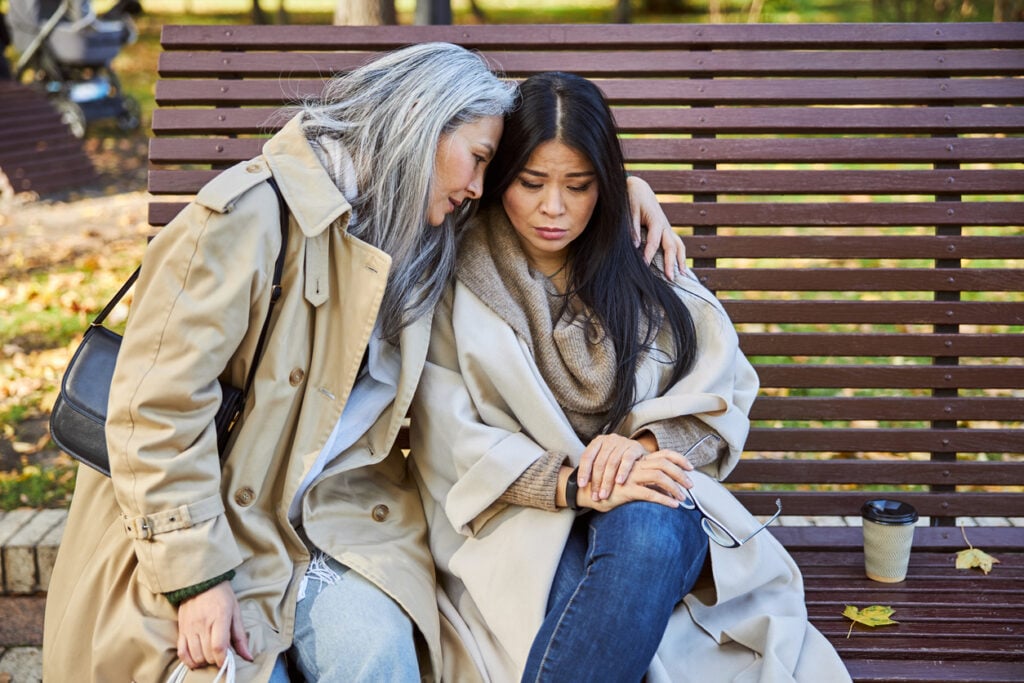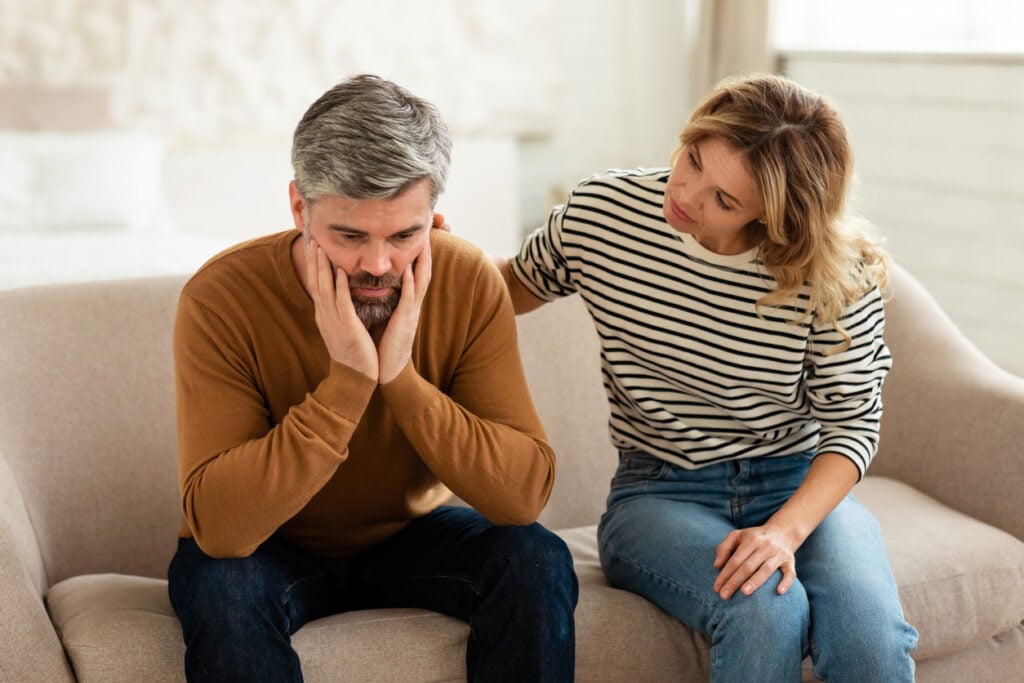Break free from the chains of regret by cutting these 11 guilt-inducing habits out of your life for good.

If you’re exhausted from carrying around guilt like it’s a second skin, it’s time to stop and take a hard look at the behaviors feeding that emotional weight. So many of us live under a silent, constant pressure to please others, make up for the past, or avoid rocking the boat—and it’s quietly eating away at our peace. These guilt-inducing habits aren’t harmless quirks; they’re like emotional quicksand, pulling you deeper into a cycle of shame and self-doubt.
By letting go of these 11 habits, you’re not just lightening your load—you’re reclaiming your power, your voice, and your right to live a life that feels good, honest, and truly free.
1. Stop apologizing for things that aren’t your fault.

Apologizing when you’ve done something wrong is a healthy and mature act, but saying “I’m sorry” when you haven’t actually done anything wrong is a habit that chips away at your self-worth. Many of us grew up believing that keeping the peace meant constantly smoothing things over—even if that meant taking on blame that didn’t belong to us. Over time, this trains your brain to see yourself as responsible for everything, even things entirely out of your control, as stated by Crystal Raypole at Healthline.
Next time you’re about to apologize, pause and ask yourself: Did I actually do something wrong, or am I just trying to make someone else feel better? You’re not responsible for every awkward moment or someone else’s discomfort. Save your apologies for when they really matter. The more you practice withholding unnecessary apologies, the more grounded and confident you’ll feel in your interactions—and the less guilt you’ll carry around for things that were never on you to begin with.
2. Quit beating yourself up over past mistakes.

We all carry memories of moments we wish we could redo—words we shouldn’t have said, decisions we regret, times we let someone down, experts at Stop It Now shared. But turning those memories into a mental loop of self-punishment only makes things worse. Beating yourself up doesn’t serve anyone; it doesn’t fix the past, and it certainly doesn’t make you a better person. It just deepens your shame and keeps you emotionally stuck.
The truth is, you did the best you could with the tools, awareness, and circumstances you had at the time. You’re not the same person you were back then, and it’s time to acknowledge your growth instead of constantly revisiting your flaws. Learn the lesson, feel the regret briefly if you must, and then move on. You deserve compassion from yourself—especially during moments of reflection. Let the past inform your growth, not define your worth.
3. Stop saying yes to things you really don’t want to do.

Saying “yes” out of obligation is one of the quickest ways to betray yourself. Whether it’s agreeing to favors you don’t have time for, social events that drain you, or responsibilities that aren’t truly yours, these decisions might look generous on the surface—but they cost you far more than you realize. Over time, they lead to burnout, resentment, and a lingering guilt for not honoring your own needs, as mentioned by Kimberly Drake.
Start asking yourself what you actually want instead of what you think will keep the peace. It’s okay to disappoint someone if it means telling the truth about how you feel. Saying no isn’t selfish; it’s a boundary. And setting boundaries is one of the kindest things you can do—for yourself and others. Because when you stop overcommitting out of guilt, you create space to say “yes” to the things that truly matter.
4. Don’t take responsibility for other people’s feelings.

Trying to manage everyone else’s emotional state is an impossible job, but many of us learned to do it anyway. We walk on eggshells, avoid tough conversations, and over-explain ourselves—all in hopes that others won’t feel hurt, angry, or disappointed. The problem is, this kind of emotional caretaking creates a huge burden of guilt when others react negatively, even when we’ve done nothing wrong.
You can be kind, respectful, and empathetic without taking on the emotional outcomes of other people’s lives. Their reactions are based on their own experiences, beliefs, and wounds—not just your actions. Let go of the illusion that you can or should control someone else’s feelings. Your responsibility ends where your behavior does. When you stop internalizing everyone’s emotions, you reclaim your energy, your peace, and your freedom to live more honestly.
5. Stop hiding your true self to make others comfortable.

Pretending to be someone you’re not just to avoid conflict or keep others happy is one of the most exhausting things you can do. Whether it’s biting your tongue, laughing when you’re uncomfortable, or avoiding your true interests and values, hiding who you really are sends the message that you’re not worthy of being seen. And that, over time, breeds shame and disconnection from yourself.
The truth is, you’ll never feel truly free until you start showing up as your full, authentic self. Not everyone will like it, and that’s okay. The right people will respect and appreciate your honesty—even if they don’t always agree. Let go of the need to be palatable. When you embrace who you really are without apology, you not only lighten your emotional load, but you also build a life that actually feels like yours.
6. Stop holding onto grudges that only weigh you down.

Grudges might feel justified in the moment, but over time they become emotional chains that weigh you down far more than the person who hurt you. Every time you replay the hurt, you’re reopening the same wound and reinforcing the pain. That repetition doesn’t heal you—it keeps you stuck in the same loop of anger, resentment, and guilt for not letting go sooner.
Letting go of a grudge doesn’t mean you’re condoning what happened; it means you’re choosing your peace over your pain. Forgiveness is a gift you give yourself—it’s how you loosen guilt’s grip and create room for healing. Start by acknowledging the pain, then make a conscious decision to release it. It’s not easy, but it’s freeing. And with every step toward forgiveness, you reclaim another piece of yourself that’s been locked up in bitterness.
7. Quit thinking you have to be perfect all the time.

Perfectionism might seem like a drive for excellence, but really, it’s fear wearing a mask. It tells you that if you just do everything right, you’ll avoid judgment, disappointment, and guilt. But chasing perfection is a losing game—because no matter how hard you try, the bar keeps moving. And every time you fall short (which is inevitable), guilt swoops in like a storm.
You are allowed to make mistakes, to be messy, to fall short of impossible standards. That doesn’t make you weak—it makes you human. The more you embrace your imperfections, the more space you create for authenticity, creativity, and self-acceptance. Letting go of perfection is one of the kindest things you can do for yourself. It lifts the weight of guilt and replaces it with grace.
8. Stop comparing your life to everyone else’s.

Comparison might feel like a natural part of life, but when it becomes a daily habit, it starts to erode your self-esteem and fuel your guilt. You see someone else succeeding, looking happy, or moving forward, and suddenly your own life feels like it’s not enough. But what you’re comparing yourself to is often an illusion—especially in the curated world of social media.
Your journey is uniquely yours, and trying to measure it against someone else’s highlight reel only distracts you from your own growth. The more you focus on what others have, the less you appreciate your own path. Instead of competing, celebrate your small wins, honor your efforts, and recognize the beauty in where you are right now. Guilt fades when gratitude and self-respect take its place.
9. Don’t stay in toxic relationships out of guilt.

It’s easy to stay in a damaging relationship because you feel bad about leaving, especially if someone’s been emotionally dependent on you. But staying where you’re constantly hurt, manipulated, or diminished does not make you noble—it keeps you trapped in a loop of guilt, shame, and emotional depletion. You’re not obligated to stay somewhere that makes you feel small.
Leaving a toxic relationship doesn’t mean you’re giving up or being selfish—it means you’re choosing your mental and emotional well-being. You’re allowed to walk away from what no longer serves you, even if it disappoints others. Guilt may show up at first, but freedom and healing will follow. Trust that your desire for peace is valid and that you don’t have to sacrifice your happiness for someone else’s comfort.
10. Stop overthinking every decision you make.

Overthinking is one of the most exhausting habits we fall into when we’re afraid of making the wrong move. You replay conversations, second-guess choices, and obsess over what might have been better. But all that mental spinning doesn’t lead to clarity—it creates more guilt and self-doubt, making even the smallest decisions feel overwhelming.
Start practicing trust in your own judgment. Make the best choice you can with the information you have and allow that to be enough. You won’t always get it right, but you’ll learn and grow either way. The less you second-guess yourself, the more confident and empowered you’ll feel. And that, over time, dissolves the guilt that comes from thinking there’s always a “right” answer.
11. Quit blaming yourself for things beyond your control.

When things go wrong, it’s easy to look inward and assume you should’ve done more, seen it coming, or prevented it somehow. But life is full of unpredictable moments, and blaming yourself for things you had no control over is not only unfair—it’s harmful. It sets you up for chronic guilt over circumstances that were never yours to fix.
Accepting that you don’t have control over everything isn’t weakness—it’s wisdom. Let go of the belief that you’re supposed to hold the world together. You’re human, not a superhero. When you stop carrying the weight of things that weren’t yours to begin with, you create space to breathe, heal, and feel whole again. That’s where your freedom begins.
